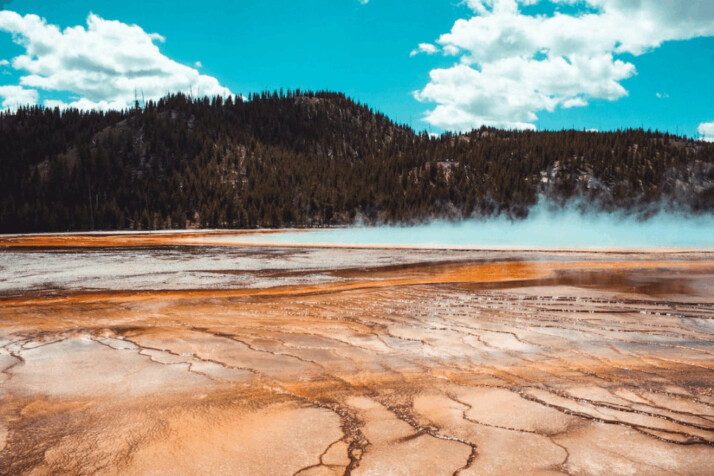Earth science studies the properties, dynamics, and interrelationships of the Earth, its biosphere, and its atmosphere. This includes the changing global climate and natural hazards.
Earth science questions aim to understand the physical Earth, its soil, atmosphere, gravitational pull, and its waters, including the geologic and hydrologic cycles.
Earth scientists use earth observation tools, including field studies of the planet’s surface to make several assumptions, the most fundamental being Earth’s geologic evolution. This guide discusses some of the top earth science questions.
Groups of Earth Science
Below are the six groups of Earth science:
- Consists of academic fields that study the air and water above or near the Earth’s surface.
- Concerns research on how the solid Earth was formed.
- Involves a thorough examination of landforms.
- Examines the history of Earth.
- Includes useful, real-world applications of Earth science that deal with energy, how to use it, and protecting the planet from natural disasters.
- Includes astrogeology and related fields and investigates the rock records of celestial bodies.

Most Common Earth Science Questions
1. How did Earth and other planets form?
Scientists are baffled about how the planets evolved into such diverse bodies, with our rocky orb sustaining life.
2. What happened in the first 500 million years after Earth’s formation, called the “Dark Age”?
The emergence of the atmosphere and oceans can be explained with a knowledge of Earth’s early history. One issue is that few pebbles from that era have survived, leaving little tangible proof.
3. How did life start?
Scientists are exploring Mars, where the sedimentary record of early planetary history precedes the oldest rocks on Earth. This is in addition to the rocks and minerals found on Earth.
4. How does the interior of the Earth function, and what is its impact on the surface?
Scientists are interested in learning more about the past and future of the Earth’s mantle and core’s continuous convective motion. That is the cause of volcanism, mountain-building, and seafloor development.
5. Why do continents and plate tectonics exist on Earth?
Scientists ponder why Earth has plates that are shifting. And how closely plate tectonics is tied to the availability of water, continents, oceans, and life.
6. How do material properties affect Earth’s processes?
Scientists are interested in learning more about material properties and atomic structure. This is because they are the source of the significant forces that shape Earth, such as plate tectonics.
7. What factors influence climate change, and to what extent can it change?
Scientists can better forecast the scope and effects of climate change with a deeper understanding of Earth’s climate history.
8. In what way has Earth shaped life, and how has life shaped Earth?
Understanding the role of life in introducing oxygen into the atmosphere and the trajectory of evolution depends on the interconnections between geology and biology.
9. Is it possible to predict earthquakes, volcanic eruptions, and their effects?
Scientists don’t understand how magma moves beneath the Earth’s surface and how fault ruptures start and cease.
10. How do fluid flow and transport impact the environment?
Scientists don’t understand the way fluids flow underground. More information about this will be beneficial for managing natural resources and the environment.
More Earth Science Questions
- Can wind move faster than sound?
- Why is there only water vapor in the air and no other vapors?
- How do geologists determine the age of rocks using carbon dating?
- Why do clouds move when they are merely water vapor?
- In what way do underground rivers supply water to wells?
- For what reason does ice build up on a lake’s surface?
- Do I weigh less near the equator than at the North Pole?
- Why doesn’t a lightning strike the same spot twice?
- In what manner does salt disappear from icebergs?
- The coldest and darkest times of the year coincide. Why is that?
- Does a rainbow’s rear have the same appearance as its front?
- In what way does the cloud fill up with water?
- Will the entire world shift a tiny bit if I jump?
- Is the water cycle interrupted anytime it is wasted in the home?
- How does diffraction cause the haziness in a tree’s shadow?
- How does ocean debris get cleaned up?
- Why are raindrops shaped like tears?
- Winter weather is cold for water to remain a vapor, how can there be clouds?
Wrapping Up
Without Earth, we would not be here. The minerals found in Earth’s crust and the diverse life it supports help make Earth a vital planet. Earth science addresses the question of what Earth is made of, how it changes, and how geological processes affect the planet.
Earth science is also a realm where many questions remain unanswered, and Earth science research often leads to greater questions that require further exploration.
Explore All Engaging Questions Tool Articles
Consider These Fun Questions About Spring
Spring is a season in the Earth’s yearly cycle after Winter and before Summer. It is the time life and…
Fun Spouse Game Questions For Couples
Answering spouse game questions together can be fun. It’ll help begin conversations and further explore preferences, history, and interests. The…
Best Snap Game Questions to Play on Snapchat
Are you out to get a fun way to connect with your friends on Snapchat? Look no further than snap…
How to Prepare for Short Response Questions in Tests
When it comes to acing tests, there are a few things that will help you more than anything else. Good…
Top 20 Reflective Questions for Students
As students, we are constantly learning new things. Every day, we are presented with further information and ideas we need…
Random History Questions For History Games
A great icebreaker game is playing trivia even though you don’t know the answer. It is always fun to guess…
